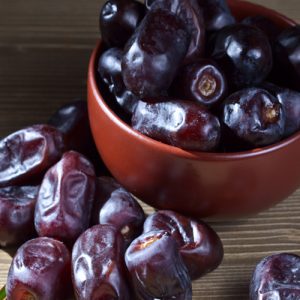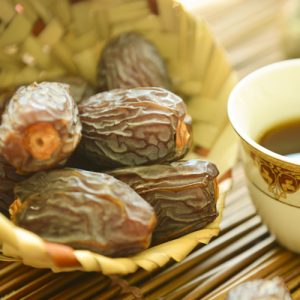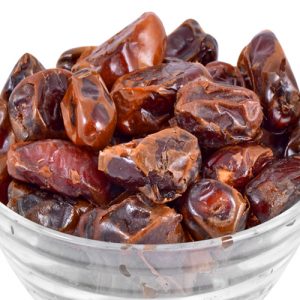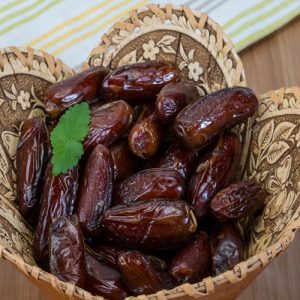Description
The Ajwa dates are a black dates grown in the Madina munawara region of Saudi Arabia. It is sweet, fruity and fresh flavor. The dates tend to be small in size and have a flexible feel. It is the most exquisite and pricey of the dates varieties, especially in Saudi Arabia. Despite its higher cost, the Ajwa variety of dates are always high in demand because of its religious significance. We are the exporter of dates of all kinds all through the world.
The Ajwa variety of dates are cultivated mostly in the Al-Madina region of Saudi Arabia. The particular climatic conditions of this region are the most suitable for its growth.
Harvesting period
Ajwa dates are harvested mainly during the summer from May to October, and mostly during the hot months of July and August.
There are three major maturation stages for dates :
- First is the Khalal stage in which the fruit gets mature, hard and crisp and has a high moisture content. It is deep red in color and is easily perishable and so requires more care in terms of packaging and storage.
- Second stage is Rutab stage in which the fruit ripens further. The Ajwa dates becomes darker in color, partially-browning from the tip. It has a reduced humidity content (30 – 45 %). Its fibres are soft and also fragile, therefore requires additional care.
- The Tamar stage in which the color changes, becoming a darker brown almost black. For the Ajwa dates, the moisture content is reduced (almost 10-25%) and the fruit is considered semi-dried. This is the edible stage of the Ajwa variety and is the period at which it is harvested for human consumption.
Production
A full-grown Ajwa dates palm tree may produce up to 150 pounds of fruit in a year. The dates are mainly produced locally within Saudi Arabia. The demand of the fruit is very high for its religious and health significance. The sale of date is noted to be higher during the period of Ramadhan, with about 40% of the dates being consumed at this time.
Exportation and consumer markets
These dates are mostly consumed locally in Saudi Arabia and the other countries where they grow. The dates can also be collected and packed in bulk for the purpose of export to the dates supplier. A quantity of the product is exported to the neighboring Middle East and Asian countries such as India, and even to other distant parts of the world such as Africa, Europe and the Americas. The dates are also supplied to the Iranian dates supplier for the huge demand of the dates.
The storage fact of the Ajwa dates
As Ajwa dates are harvested in the ripened and dried stage, they posses a minimum humidity content. This gives them an extended shelf life and thus can be sold round the year. The fruits, in the dates factory are packed in large cardboard containers for bulk sales and exports. They do not require special storage such as refrigeration, although care must be taken not to store them in areas with excessive heat or humidity as this might harden the fruit making it unsuitable for the consumer.
Nutrition and health benefits
Primarily composed of carbohydrates and little amount of sugar, the dates contains glucose and fructose also with little amount of starch. The sugary content of the dates makes them a good supply of energy. It is easily digestible and contain a good amount of dietary soluble and insoluble fiber.
Above all, Ajwa dates contain vitamin A, B-complex vitamins: B1 thiamine, B2 riboflavin, nicotinic acid (niacin). Also, it is natural source of folic acid, which is one of the important micronutrients. Kidney which is one of the vital organs of the body is protected by the dates against various drugs.





